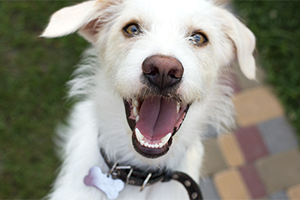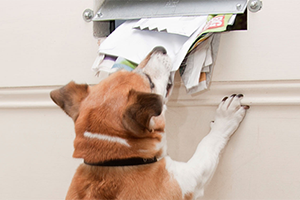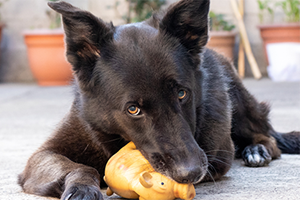Watching your dog chase their tail can seem funny at a first glance, but there’s usually an explanation behind this behaviour. Sometimes, it’s down to simple playfulness, but other times it can indicate something more serious.
If your dog’s tail chasing is only occasional, there’s probably nothing to worry about. But if it’s intense, frequent or combined with signs of stress or pain, it could be linked to an underlying health issue.

















